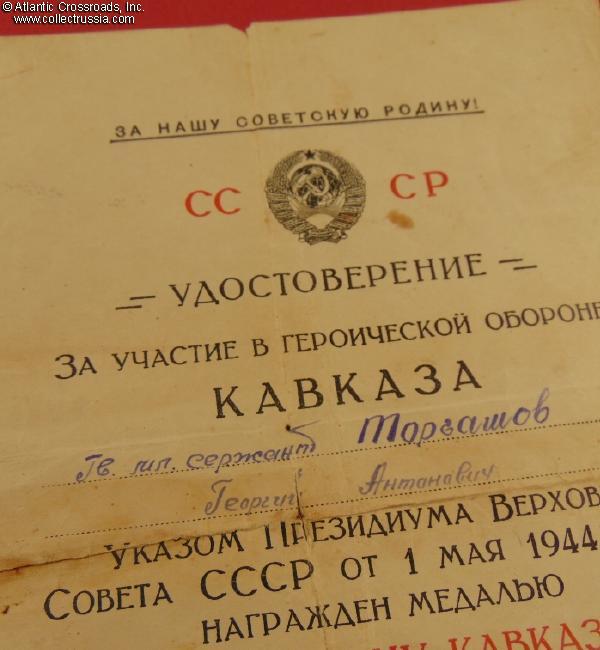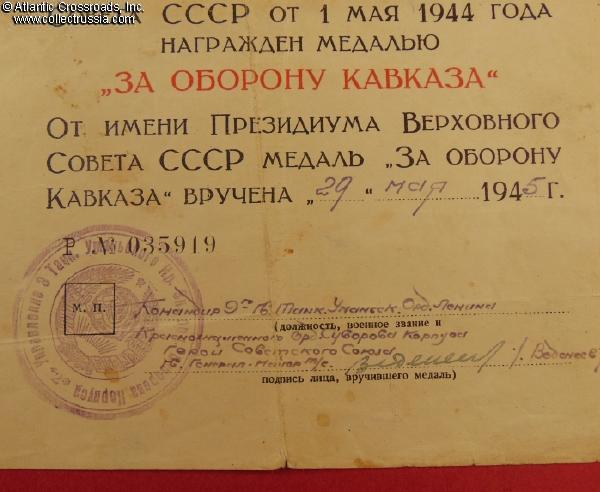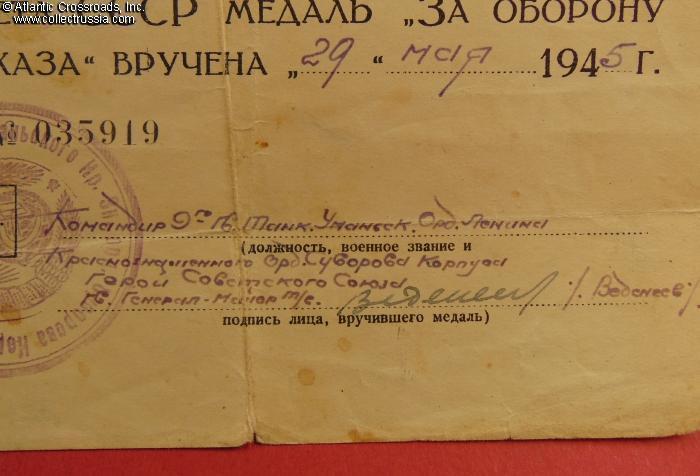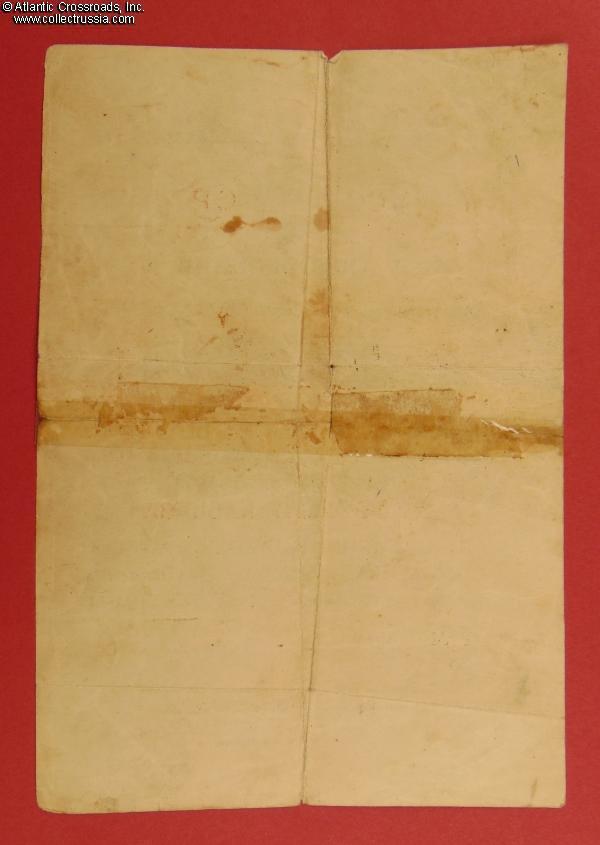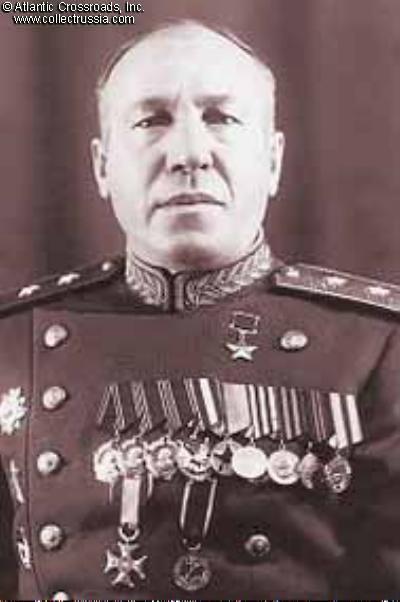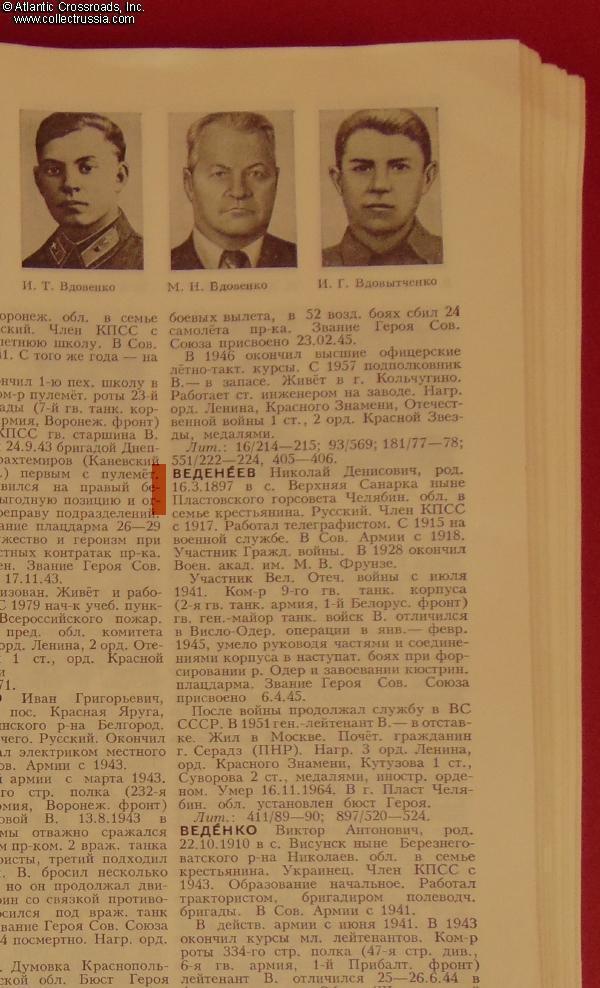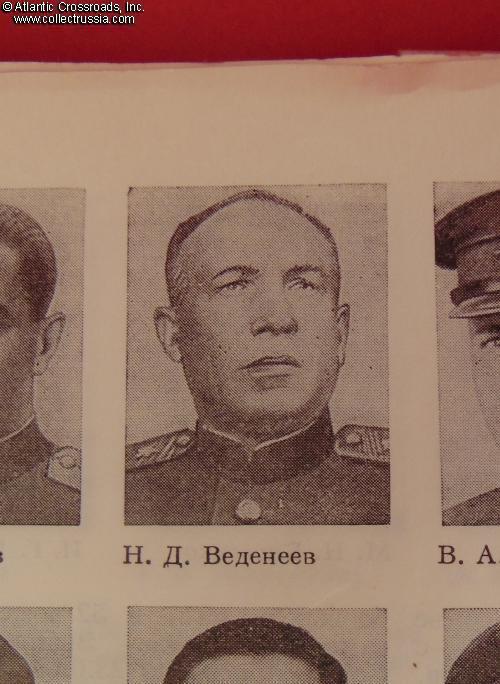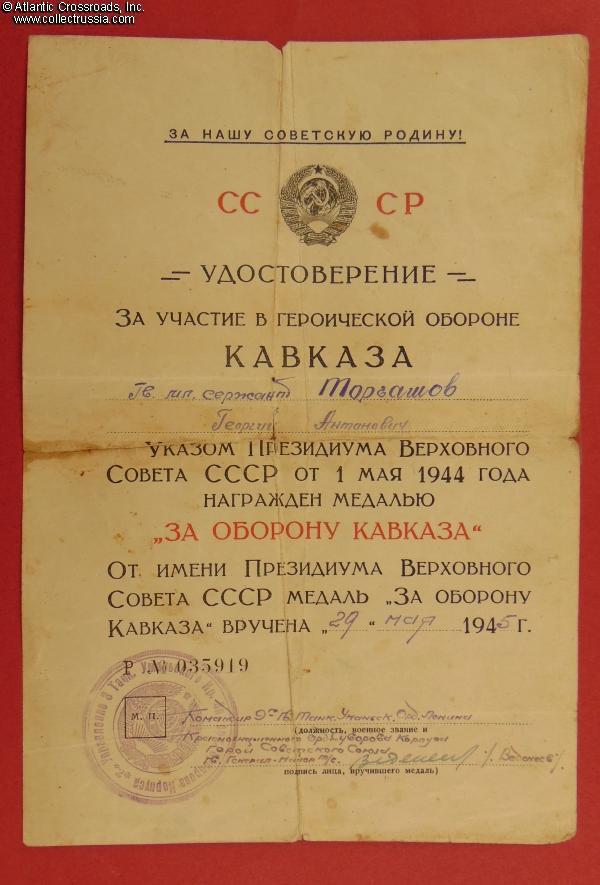
Award Document for a Defense of Caucasus Medal, issued on 29 May 1945 to Guards Junior Sergeant Georgiy Torgashov (Георгий Антонович Торгашов).
Measures approx. 5½" x 8¼". Hand signed by Commander of the 9th Guards Tank Corps, Hero of the Soviet Union Guards Maj. General Vedeneev.
The document is in good condition. It has been folded for storage; a small strip of translucent backing tape has been applied to verso along the horizontal fold line (this is obviously a very old repair). There are no significant separations along the other folds. The front shows a few very small stains, some foxing and wear but is generally well-preserved. The hand-written entries and unit stamp are perfectly clear and completely legib
Measures approx. 5½" x 8¼". Hand signed by Commander of the 9th Guards Tank Corps, Hero of the Soviet Union Guards Maj. General Vedeneev.
The document is in good condition. It has been folded for storage; a small strip of translucent backing tape has been applied to verso along the horizontal fold line (this is obviously a very old repair). There are no significant separations along the other folds. The front shows a few very small stains, some foxing and wear but is generally well-preserved. The hand-written entries and unit stamp are perfectly clear and completely legible. The verso has a larger amount of staining, some of it from the backing tape.
The signer of the document, Maj. General Nikolay Vedeneev (Николай Денисович Веденеев), was born in 1897 to a peasant family. During WW1, he was conscripted into the Imperial Russian Army, fought as an infantryman, and became a warrant officer. In 1917, he joined the Bolsheviks and took active part in the Russian Revolution and the ensuing Civil War. Following the Bolshevik victory, he remained in the military initially as a commissar and then as a cavalry unit commander. During the interwar period, he graduated from the prestigious Frunze Military Academy, quickly rose through the ranks, and narrowly escaped prosecution during Stalin's great purge of the military.
In the early months of the Patriotic War, Vedeneev commanded the 20th Mechanized Corps which was nearly annihilated in a great battle near Bobruisk not far from the Soviet frontier. He was however able to organize a fighting retreat of a significant part of his troops with whom he escaped the capture and rejoined the main Soviet forces. After serving as a senior instructor at the Stalin Armored Corps Academy for the following two and a half years, Vedeneev was once again given combat command in April 1944. Initially, he was appointed Deputy Commander of the 8th Guards Tank Corps but soon after the great Bagration offensive in Belorussia, promoted to Commander of the 3rd Tank Corps of the 2nd Tank Army, 1st Belorussian Front. Under his command, the corps achieved great success in the capture of the Polish cities of Lublin and Demblin and was subsequently elevated to Guards status becoming the 9th Guards Tank Corps.
(It is interesting to see that in May 1945 when the Defense of Caucasus document was issued, the corps headquarters was still using the old 3rd Tank Corps stamp even though the unit was already referred to by its current designation in the written rank of its commander. It is clear that the Soviet troops in the field had more serious matters to attend to than changing stamps to keep up with the name changes. We've seen numerous other examples of that in Soviet documents of the period.)
In January 1945, Maj. Gen. Vedeneev's corps achieved a breakthrough on the second day of the Vistula-Oder Operation and then made a stunning progress advancing 30-40 km per day during the following three weeks. In February, his troops crossed the Oder River and captured a strategic bridgehead on its western bank near Küstrin (now known as Kostrzyn) which would be later used to great effect in the Berlin Operation. For these exceptional achievements as well as his personal bravery, Vedeneev was made a Hero of the Soviet Union on 6 April 1945.
Vedeneev continued to show outstanding leadership in the last weeks of the war. His corps played an important role in the Battle of Berlin and ended the war in the center of the conquered German capital. It must be added that Vedeneev was greatly beloved by his troops who gave him the traditional Russian "body tossing in the air" honors during the V-Day celebrations in Berlin.
Research Materials: Xerox copy of the article about Gen. Vedeneev in the official Soviet-era catalog Heroes of the Soviet Union
(includes his photo). Additional information about him is available on various Russian-language websites such as warheros.ru.
$125.00 Add to cart

